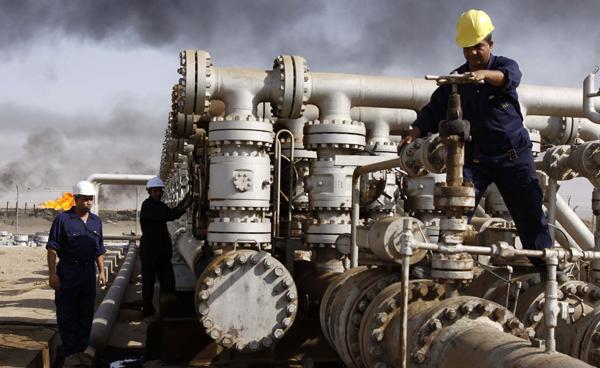You are here
'Global energy system under stress'
By AFP - Nov 12,2014 - Last updated at Nov 12,2014
PARIS — With fossil fuels set to meet most of the increased global demand for energy, the International Energy Agency (IEA) warned Wednesday that climate change targets are at risk and conflicts could still wreak havoc with supplies.
"The global energy system is in danger of falling short of the hopes and expectations placed upon it," the IEA said in its World Energy Outlook 2014 report.
The Paris-based body, which advises industrial oil consuming nations, forecasted global energy demand will grow 37 per cent by 2040, with fossil fuels key to meeting that increased demand despite concerns about global warming.
It warned global energy security is at risk in the oil market as "reliance grows on a relatively small number of producers".
It noted that the Middle East "remains the only large source of low-cost oil", but conflict in the region "has rarely been greater since the oil shocks in the 1970s" that left consuming countries desperately short of fuel supplies.
While oil prices are currently at four-year lows, it sees them rising as demand increases from 90 million barrels per day (mbpd) in 2013 to 104 mbpd in 2040.
It said that higher prices and new policies will gradually constrain the pace of their consumption and reduce their weight in overall energy use.
That view is shared by top oil producers.
Last week, the Organisation of the Petroleum Exporting Countries (OPEC) predicted that fossil fuels, oil, gas, coal, will still "play the leading role in satisfying world energy needs" but will dip from 81.6 per cent to 78.4 per cent of total energy consumption.
The IEA sees the fastest rate of growth among fossil fuels for natural gas, where demand should increase by more than half, becoming the leading fuel in the OECD (Organisation for Economic Cooperation and Development) energy mix by 2030.
The dispute between Russia and Ukraine over a separatist insurgency in the east of the ex-Soviet country has reignited concerns about gas security, especially for European markets.
The IEA noted those fears but said they were partly allayed by a growing number of suppliers, and that the alternative of "liquefied natural gas (LNG) offers some protection against the risk of supply disruptions".
Call for safer energy
As for coal, while the supply is abundant and secure, "its future use is constrained by measures to tackle pollution and reduce carbon dioxide emissions," it said.
While the share of fossil fuels in energy consumption will drop to just under three quarters by 2040, their impact on global warming and climate change is undiminished.
The IEA called for urgent action as it estimates the world is currently set to emit by 2040 the amount of carbon dioxide that would bust the international goal of limiting the global temperature increase to 2 degrees Centigrade.
"It is clear that the 2 degrees Centigrade objective requires urgent action to steer the energy system on a safer path," said the IEA, which plans to issue a special report in advance of a crucial UN climate summit in Paris next year.
While a major alternative to fossil fuels, the IEA sees an uncertain future for nuclear power as Japan and a number of European countries reduce or phase it out over safety concerns.
Global nuclear capacity will nevertheless increase by almost 60 per cent, with China alone accounting for 45 per cent of the growth.
But this will only increase its share in the energy mix by one point to 12 per cent, still below its peak two decades ago.
It pointed to renewable energy technologies to help fill the shortfall in power generation as they are gaining ground, helped by global subsidies amounting to $120 billion in 2013.
The share of renewables, wind, solar, hydropower, biofuels, increases most in the OECD major industrialised nations, reaching 37 per cent of power generation, the IEA concluded.
Related Articles
Demand for oil is feeling the squeeze of weak growth in Europe, slowdown in China and abundant supplies, the International Energy Agency (IEA) said on Thursday.
PARIS — Oil prices may have rebounded off 12-year lows struck last month, but any hope for a broader recovery in the market would be misplac
LONDON — Global demand for crude oil produced by the Organisation of the Petroleum Exporting Countries (OPEC) will remain under pressure in

















